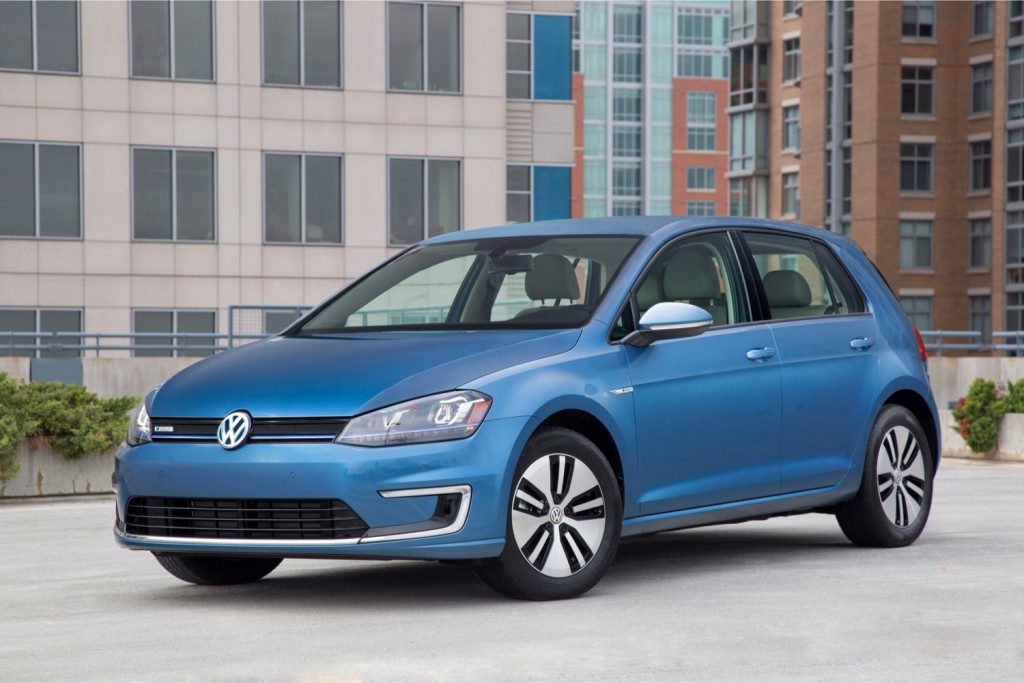After much discussion, Germany appears poised to implement significant incentives to encourage the purchase of electric cars.
This week, the German government announced an incentive program that will include rebates for both electric cars and plug-in hybrids.
The costs of the program are estimated at roughly 1 billion euros (about $1.1 billion) to the program, with funds to be provided both by the national government and by automakers.
DON'T MISS: Germany To Spend Billions Supporting Electric Car Expansion
That will hopefully yield up to 400,000 electric-car sales, German Transport Minister Alexander Dobrindt told Reuters when the program was announced today.
Buyers of electric cars will receive 4,000 euros (about $4,500), while buyers of plug-in hybrids will receive 3,000 euros (about $3,400).
[UPDATE: This article was originally published on April 27, 2016. On May 18, the German cabinet approved the final legislation. We have updated this article in several places to reflect the provisions adopted.]

Updated Audi A3 e-tron Sportback (European spec)
However, there will be a price cap of 60,000 euros (about $68,000). Cars costing more than that will not be eligible for incentives.
That eliminates the Tesla Model S, which was the best-selling electric car in Germany last year, as well as the Model X crossover.
A slew of luxury plug-in hybrids from Audi, BMW, Mercedes-Benz, and Porsche are similarly excluded from the program.
ALSO SEE: Germany Mulls Boosting Electric-Car Incentives Under Carbon-Goal Pressure (Jun 2015)
German automakers are now planning several new all-electric luxury models—including an Audi electric SUV, Porsche electric sedan, and an electric version of the Volkswagen Phaeton full-size luxury sedan—that would be priced too high for incentives.
German magazine Der Spiegel reported earlier that those funds will be dispensed on a first-come, first-served basis.
That means that, unlike the U.S. Federal income-tax credit program, there is no cap on how many cars from each maker can receive the incentive.

2016 Volkswagen e-Golf
The government is also reportedly considering cutting incentives in 2018, to 3,000 euros for electric cars and 2,000 euros (about $2,300) for plug-in hybrids, giving an early advantage to automakers that already have eligible cars on sale.
As well as the purchase incentives, German Finance Minister Wolfgang Schaeuble said the program will include 300 million euros (about $340 million) in funding for charging stations, which the government may begin dispensing as early as next month.
Germany currently has about 2,400 operational Level 2 charging sites, and around 100 DC fast-charging locations.
[UPDATE: The final program, approved on May 18, also includes a 10-year exemption on vehicle tax for all electric cars, retroactive to January 1, 2016. The previous exemption was five years.]
MORE: Germany To Boost Incentives Toward 1-Million Electric-Car Goal By 2020? (Dec 2014)
These measures are needed to help Germany meet a goal of putting 1 million electric cars on its roads by 2020.
Today, there are only about 50,000 all-electric cars and plug-in hybrids on the road in Germany.
Various financial incentive plans to encourage electric-car purchase already exist in the U.K., France, The Netherlands, Norway, Denmark, and other countries in the region.
_______________________________________________












